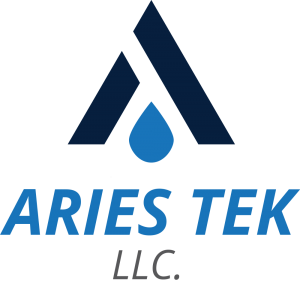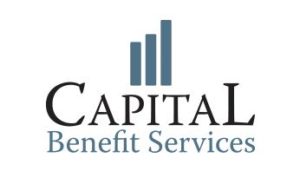If, like us, you’ve been flooded with emails in the past few weeks providing links and resources to state and federal loans, grants, and related programs for employers and employees, we are sure you can appreciate how overwhelming all the information can be. To try our best to help here, we’ve been busy distilling down all that information and working on pulling together as many useful resources and links.
Some of our state and federal resources are updated regularly so please check them every few days as well as look for more emails from us containing meaningful updates to our situation.
COVID- 19 Webinar presented by the Washington Wine Institute and Washington Wine Growers
The Washington Wine institute and the Washington Wine Growers presented a webinar on Friday April 10th. We would like to thank those businesses that were able to attend. The webinar was limited to the first 2oo participants to register, so we wanted to make sure those wineries and growers unable to attend could still review the content covered. Links to the webinar and the presentations are below.
Webinar recording can be found here COVID-19 Webinar Q&As
Moss Adams Presentation Slides Moss Adams COVID-19 Resources
Foster Garvey Presentation Slides Foster Garvey COVID-19 Resources
Have another question? Send it our way to either josh@wwi.wine or sara@wawinegrowers.org.
Federal Links
CARES Act: Covid-19 Stimulus Summary
On March 27th, the President signed into law the “Coronavirus Aid, Relief, and Economic Security Act” (the CARES Act), the largest economic relief act in our country’s history.
WineAmerica has provided a basic summary of the CARES Act and benefits for the wine industry here.
The US Travel Association has provided a list of relief resources through new or existing federal programs as a result of this legislation. You can find those specific programs here
Paycheck Protection Program (PPP)
An SBA Loan that helps businesses keep their workforce employed during the Coronavirus (COVID-10) crisis. Information on the program as well as how to apply can be found here
The US treasury also has published information on assistance for small businesses thru the paycheck protection program, you can access that information here
TTB Updates and Guidance on COVID-19
The Alcohol and Tobacco Tax and Trade Bureau (TTB) recognizes that businesses that they regulate are being severely impacted by COVID-19. To assist these businesses during this period, they are postponing several filing and payment due dates for 90 days where the original due date falls on or after March 1, 2020, through July 1, 2020.
To view the latest updates and guidance to help you and your business respond to the COVID-19 national emergency – Click here
US Department of Labor
The US Department of Labor announced new action regarding how American workers and employers will benefit from the protections and relief offered by the Emergency Paid Sick Leave Act and Emergency Family and Medical Leave Expansion Act, both part of the Families First Coronavirus Response Act (FFCRA). Wage and Hour posted a temporary rule issuing regulations pursuant to this new law, effective today, April 1, 2020.
The US DOL will post a recorded webinar on Friday, April 3, 2020 to provide interested parties a more in-depth description and help you learn more about the FFCRA.
Wage and Hour Division (WHD) invites webinar viewers to call the agency’s toll-free help line at 866-4US-WAGE to speak with trained WHD professional about any questions you may have. Please also check our COVID-19 response website often, as we continue to update the compliance assistance information available there. Similarly, signing up for the USDOL Key News Alerts will ensure that you remain current with all notice requirements.
The Seattle District Office is also here locally to offer assistance to our stakeholders in the business, government and worker communities in Alaska, Washington and Northern Idaho at 206-398-8039.
Centers for Disease Control
Washington State Links
Washington State Coronavirus (COVID-19) Response
Latest news and what you need to know about the coronovirus in Washington State. Includes statistics, what to do if you are ill, state closures, essential businesses, etc. That information can be located here
Department of Revenue WA State
The Dept of Revenue is taking several actions to provide relief to COVID-19 impacted businesses during the state of emergency . These actions address a broad range of taxes and programs: business and occupation tax, real estate excise tax assessments, leasehold excise tax, forest tax, and tax deferrals for biotechnology and medical device manufacturing. Find additional information on the actions taken by the Dept of Revenue here.
Washington State Liquor and Cannabis Board
The LCB has provided resources and information for licensees and the public during the COVID-19 state restrictions period. The LCB has made temporary modifications to ensure safe customer engagement for your business. Unless otherwise mentioned, these temporary modifications are effective until determined differently. You can find a list of the temporary allowances that include excise tax payment penalties waived details, alcohol sale allowances, return of alcohol, curbside delivery, and license renewal payment details, as well as FAQ here
Department of Labor and Industries
The Department of Labor and Industries has published a Paid Sick Leave FAQ. L&I and ESD have worked together to establish a Paid Family and Medical Leave FAQ. Combined, these FAQ address a range of possible scenarios that may unfold as workplaces resume operations.
Employment Security Department of WA State (ESD)
The ESD has provided information including answers to FAQs on their website for employers and workers.
If you do not find the answer to your question on the ESD website, please send your question directly regarding any UI or related items to Josh McDoanld at WWI – Josh@wwi.wine. We have secured a direct contact with ESD to get answers for all Washington wine industry questions. ESD has requested our members use a point person with their association to try and help with the overwhelming amount of questions and requests they are getting right now. This approach will likely get your question(s) answered much faster!
Stay Safe
 Member Login
Member Login



